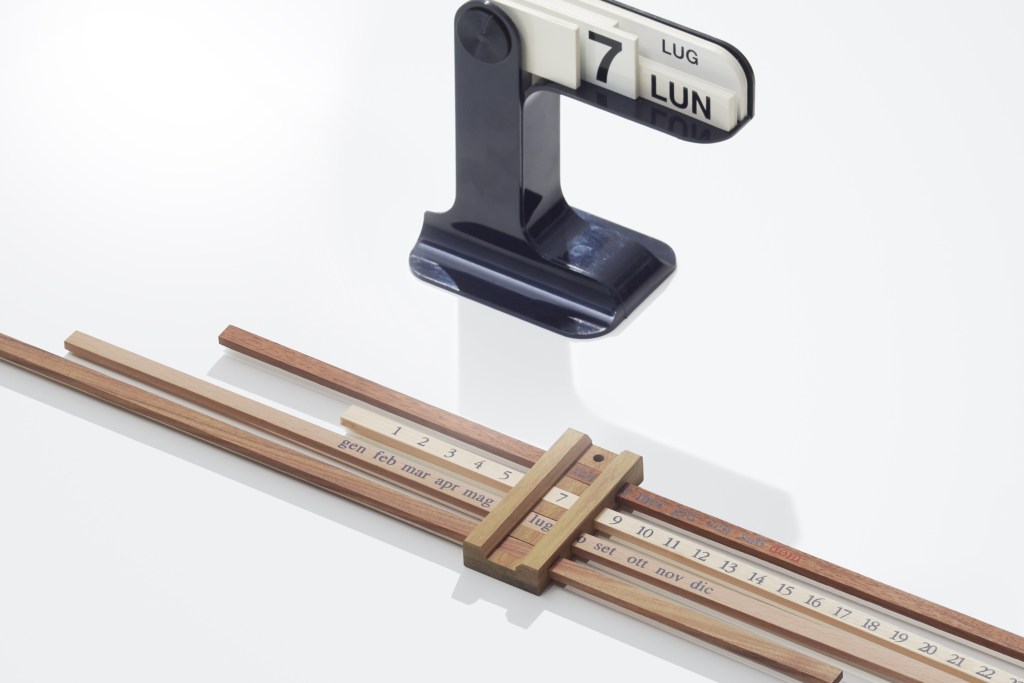These days, you can read off the day of the week on almost any device, but the calendars designed by Enzo Mari for Danese Milano are timelessly up-to-date design classics.
The Italian designer had a unique perspective when it came to time keeping. Known for his commitment to elegance and functionality, Mari saw time as a sensory journey in which we are all participants.
The simple wooden base and sliding blocks of the Bilancia model create a distraction-free way to track time. The Formosa design is an aluminium wall calendar with removable PVC sheets that are changed each day. With every page turn and block movement, these calendars invite you to pause and engage with the movement of time, bringing more meaning to each transition.

Mari was on to something. We know that time is a subjective experience that’s shaped by our surroundings, emotions, and perspectives. Although Mari’s classic designs pre-date our digital-obsessed era, he perhaps intuited, as many people have come to report, that digital devices give us the anxiety-inducing feeling that time is moving more quickly. Adjusting Mari’s calendars, however, are physical and tactile experiences that, as with many analogue activities, can slow down our perception of time. To manipulate a Mari calendar is to feel in your hands today, and tomorrow, and the next day. It’s literally what time feels like.
When it came to materials, Mari had a sort of retro approach that also proved to be avant garde. He advocated for minimalism – but that didn’t mean getting rid of everything. Instead, Mari argued for making something new out of what we already have, using simple but durable and affordable materials. That’s why he’s often considered the forefather of DIY. His passion for elevating the beauty of everyday objects and improving the human experience is evident in his work, and it’s what makes his calendars such beloved design classics.
Humans are multi-sensory creatures and touch is a fundamental aspect of how we experience the world around us. In a tech-driven environment, preserving tactility through analogue objects like Mari’s calendars can help us be more mindful. When we take a pause to be present with the transition from one day to another, we can be reminded of the blank slate of a new day, and all the possibilities it brings us.
